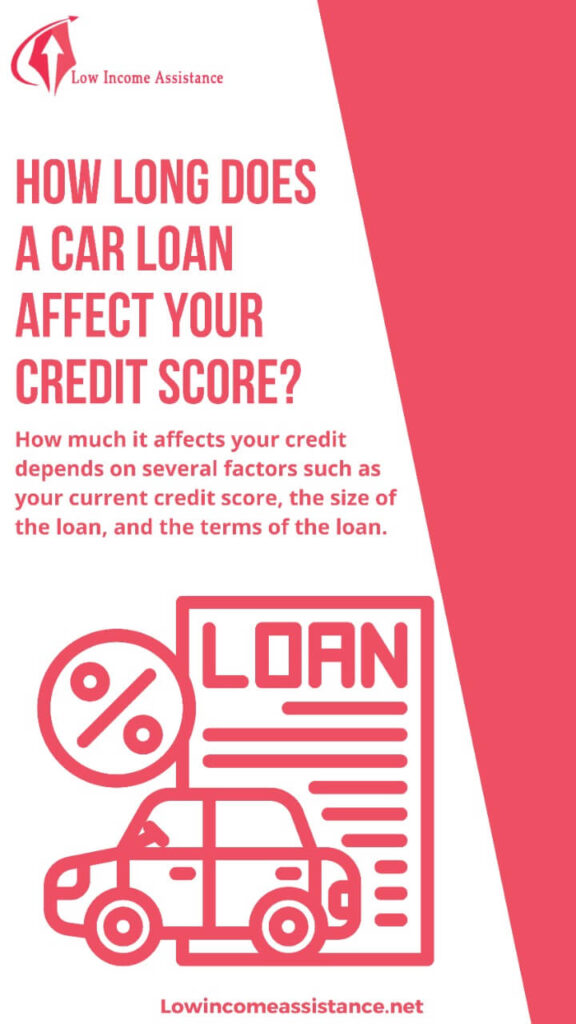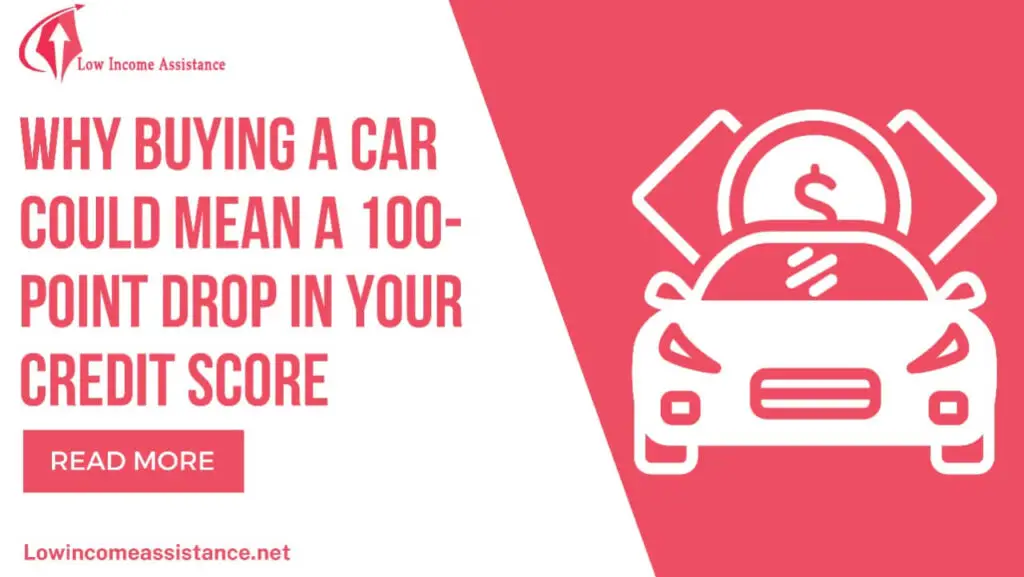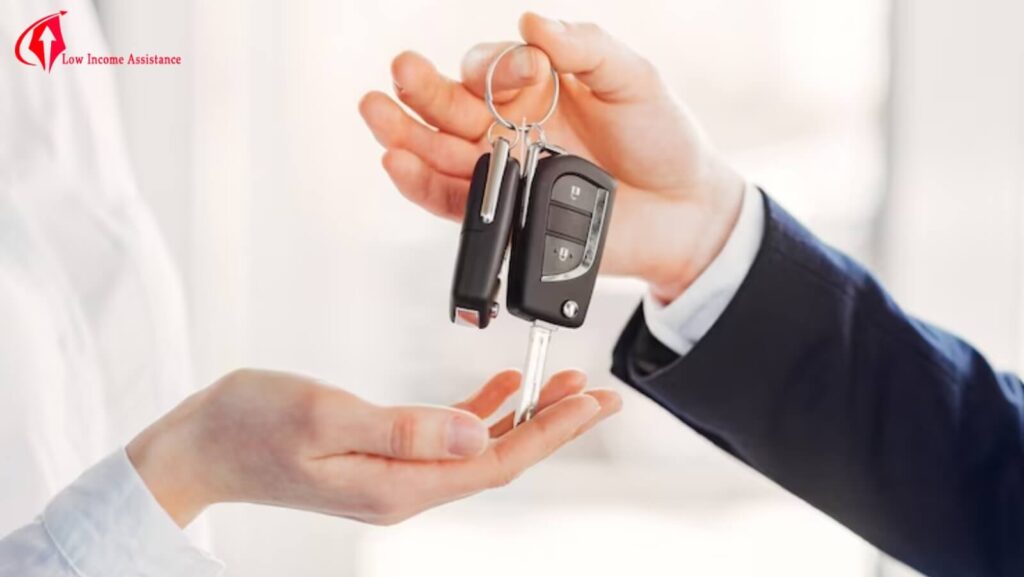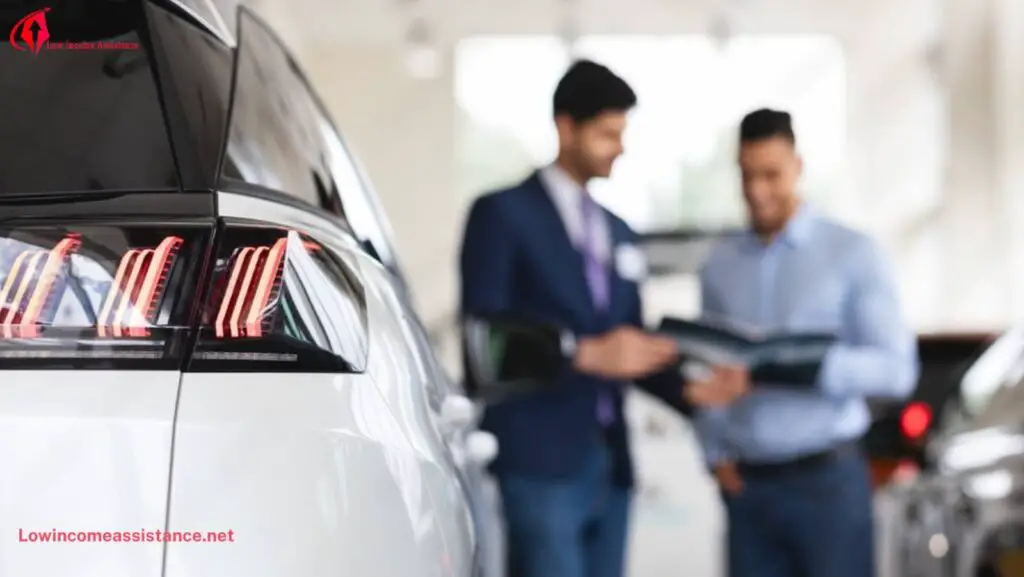It might sound strange, but your credit score can drop by as much as 100 points after buying a car. Are you thinking of buying a car? Before you go ahead and make the purchase, you should be aware that it may come with an unexpected consequence – a drop in your credit score.
In this blog post, we’ll discuss the reasons why this might happen and offer advice on how to protect your credit score when making a car purchase.
Why Credit Score Dropped 100 Points After Paying Off The Car?
Your credit score may have dropped 100 points after paying off your car for several reasons.
First, it could be because you had to increase your credit utilization to moments. This means that you had to use more of your available credit, which can negatively impact your score.
Second, the loan itself may have been reported as a “hard inquiry” to the credit bureaus. Hard inquiries occur when you apply for a loan or credit card and it reflects on your report. These hard inquiries can cause a drop in your score.
Finally, if you missed any payments or made late payments, this could also affect your score. Even if you only missed one payment, it can result in a 100-point drop.
It is important to keep up with payments so that your credit score does not suffer. Paying off a loan does not always guarantee a higher score. Depending on the circumstances, it could have the opposite effect.
Check Also: Churches that help with car repair near me.
How To Avoid A 100-Point Drop In Your Credit Score?
If you’re looking to buy a car and want to avoid a potential 100-point drop in your credit score, there are several steps you can take.
-
Check Your Credit Report For Accuracy
Before you apply for an auto loan, it’s important to make sure your credit report is accurate. Review your credit report and dispute any errors that may be hurting your credit score.
-
Shop Around For The Best Rate
When it comes to car loans, it pays to shop around. You can compare rates from different lenders to get the best deal possible.
-
Consider A Shorter-Term Loan
A shorter-term loan can help you pay off your car quicker and reduce the interest you pay over the life of the loan. However, it may also mean higher monthly payments.
-
Make A Larger Down Payment
Making a larger down payment can reduce the amount you need to borrow and lower your interest rate, helping you save money in the long run.
-
Make Payments On Time
One of the most important factors in determining your credit score is whether or not you make payments on time. Make sure you’re making all payments on time to avoid hurting your credit score.
By taking these steps before applying for an auto loan, you can help ensure that your credit score won’t take a hit after buying a car.
Check Also: How You Can Get Help With Your Car Payment Today?
How To Improve Your Credit Score After Buying A Car?
If you’ve just taken out a car loan and your credit score has dropped significantly, don’t despair. While it may take some time for your credit score to recover, there are steps you can take to help improve your score more quickly.
-
Pay Your Bills On Time
You must pay all of your bills on time and in full each month. This includes your car loan payment, as well as any other bills or loans that you may have. Late payments will damage your credit score, so make sure you stay on top of your payments.
-
Monitor Your Credit Reports Regularly
Make sure to check your credit report regularly and correct any errors or omissions that could be damaging your score. If you find an error on your report, contact the relevant credit reporting bureau to get it corrected.
-
Keep Your Balance Low
Keeping the amount of money you owe relative to the amount of money you have available (your debt-to-credit ratio) low is important for improving your credit score. Make sure to pay down your balance as much as possible.
-
Increase Your Credit Limit
Increasing the amount of credit available to you can help improve your credit score by lowering your debt-to-credit ratio. If you can increase your credit limit, it may help improve your score more quickly.
-
Check For Fraud Or Identity Theft
Be sure to check your credit reports regularly for any signs of fraudulent activity or identity theft. If you find any suspicious activity, report it immediately and take steps to protect yourself from further damage to your credit score.
Following these steps can help you improve your credit score more quickly after buying a car. However, it is important to remember that it takes time to repair your credit score, so be patient and keep working on building it back up.
Check Also: Can a 17-year-old get their own car insurance?
How Long Does A Car Loan Affect Your Credit Score?
When you finance a car, it can have a significant impact on your credit score. How much it affects your credit depends on several factors such as your current credit score, the size of the loan, and the terms of the loan.

How Much Does A Car Loan Drop My Credit Score?
When you first take out a car loan, it will typically result in a drop in your credit score. On average, this drop may be around 100 points. This is because taking out a large loan increases your credit utilization ratio and lowers your credit score.
How Does Financing A Car Affect Your Credit?
Your credit score should start to improve after you make regular payments on time for a few months. However, if you miss payments or make late payments, your credit score could continue to drop.
Additionally, if you have a longer-term loan with high-interest rates, it could also have an impact on your score for years to come.
I Paid Off My Car And My Credit Score Dropped
In some cases, even after paying off the loan in full, the account may still appear on your credit report for up to seven years. This means that if you’ve had a car loan for a few years, it could continue to affect your score even after it’s been paid off.
The good news is that you can take steps to improve your credit score while you’re paying off your car loan. You can do this by keeping your utilization ratio low, paying bills on time, and not applying for new credit cards or loans.
By doing this, you can ensure that the impact of the car loan is minimized and that your score starts to improve quickly.
What Credit Score Do I Need To Buy A Car?
When it comes to financing a car, having a good credit score is important. Generally speaking, most lenders prefer borrowers with a credit score of at least 700 or higher. A credit score of 700 or higher is considered a good credit score and indicates that you are likely to make your loan payments on time and in full.
If you have a credit score of between 640 and 699, you may still be able to qualify for an auto loan, but the terms may not be as favorable as they would be with a higher score. Interest rates may be higher and the loan amount may be limited.
If your credit score is below 640, it could be more difficult to get approved for an auto loan. You may still be able to get financing, but you will likely need to put up a larger down payment and the interest rate will likely be significantly higher than if you had a better credit score.
The bottom line is that the higher your credit score is, the better chance you have of getting approved for an auto loan and the better terms you’ll receive. Before shopping for a car loan, review your credit report and take steps to improve your credit score if needed.
It’s also a good idea to shop around for financing from different lenders to find the best terms.
Conclusion:-
Buying a car can be an exciting experience, but it can also have a major impact on your credit score. A 100-point drop in your credit score is not uncommon after taking out a car loan and can make it difficult to obtain other loans or credit in the future.
Fortunately, there are steps you can take to avoid such a dramatic decrease in your credit score. Research different lenders and their rates, be sure to make all payments on time and use less than 30% of your available credit on car loans.
By following the above steps, you can ensure that purchasing a car won’t lead to a 100-point drop in your credit score.
Frequently Asked Questions
What would cause a 100-point drop in credit score?
A 100-point drop in credit score can be caused by taking on too much debt, missing payments, or having a large amount of credit card debt. It is important to manage your debt responsibly and stay on top of your payments to avoid any drastic credit score drops.
Why did my credit score drop when I got a car loan?
Your credit score may drop when you take out an auto loan because the lender is looking at your debt-to-income ratio. If the loan is large and your income is low, it can affect your credit score.
How many points do your credit drop when applying for a car?
The exact amount of points that will be affected by applying for a car loan can vary from person to person. Generally, your credit score will drop anywhere from 5 to 10 points when applying for an auto loan.
Why did my credit score drop 70 points after paying off debt?
Paying off debt can be a positive thing for your credit score but sometimes can lead to a decrease in your score. This could be because of other factors such as a new hard inquiry or the amount of available credit you have.
Does paying off a car loan early hurt your credit?
Generally, paying off a car loan early should not hurt your credit score. Paying off a loan before the maturity date is often seen as a positive factor by lenders, as it shows financial responsibility.
Why did my credit score drop 100 points when nothing changed?
A sudden 100-point drop in your credit score could be due to any number of factors. It could be due to errors on your report, identity theft, or an inquiry made by a lender that you did not authorize. It is important to check your report regularly to ensure accuracy and make sure nothing has changed without your knowledge.














